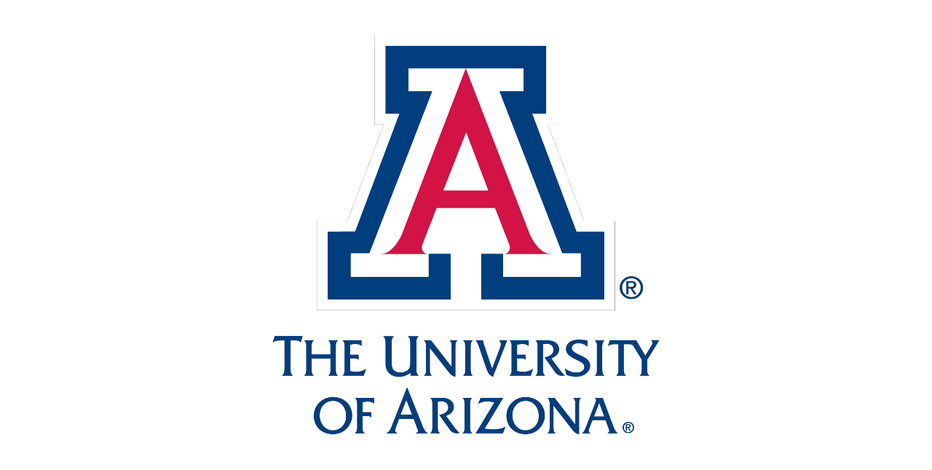Are you looking best Online Nutrition Degree, then you are on the right article. Nutrition is an essential component for people of all age groups. Most people have a very difficult time managing their nutritional deficiencies and other health problems related to their food choices. Various nutritionists and dieticians provide coaching and insights that help people promote healthier lifestyle choices.
Table of Contents
Nutrition professionals are required to complete formal education in nutrition or dietetics such as an online degree in nutrition. It is always a great add-on if the candidate has a certificate that proves their skill in this field as it contributes majorly towards career growth.
In this blog, we have curated a list of online nutrition degrees that people can take up if they are interested in learning about nutrition and diet from the comfort of their homes.
Key Takeaways:
- Studying an online nutrition degree is a great option chosen by most students.
- There are various types of nutrition degrees ranging from associate degrees to Ph.D. in nutrition.
- Coursework for an online nutrition degree allows students to pick from courses in their curriculum such as animal nutrition, food microbiology, and more.
- Although every university is different and has a set of defined courses, most universities include courses such as diet and culture, wellness psychology, and clinical nutrition.
- The career options for students after an online nutrition degree are quite vast and pay extremely well after the experience.
- Various top universities like Arizona State University Digital Immersion and Parker University offer quality online nutrition degrees.
- The admission requirements for an online nutrition degree are similar to any other degree course.
- Gaining an online nutrition degree can help students choose their classes flexibly and allow students to work while studying.
- There are various scholarships for students who need financial assistance such as the Asparagus Club scholarship, and CGCS Bernard Harris Scholarship among many others.
What are the types of Nutrition degrees?
Every nutrition school is different, however, some things should be kept in mind when you choose where to earn an online degree.
Attending an online school could provide flexibility when it comes to schedule. It will also need students to use technology to be able to finish classes.
There are various options for students that provide various online nutrition degrees. They are:
1. Associate degree in nutrition:
This is a basic degree and is required to enter into a nutrition-related job. It often takes about two years to earn an associate’s degree and could take longer if you choose to study from an online course.
2. Bachelor’s degree in nutrition:
A bachelor’s degree is usually finished in about four years and can help people set on the path to finding work in nutrition.
3. Master’s degree in nutrition:
Most high-paying jobs in nutrition need a master’s degree. To get a master’s degree in nutrition, it is important to finish your bachelor’s degree in a relevant field.
4. PhD degrees in nutrition:
The most advanced degree available, a Ph.D., will enable you to work in almost any capacity within the nutrition sector of your choice and to instruct future nutritionists in college-level courses.
Irrespective of the degree chosen, students are advised to pick from among the colleges that provide nutrition courses with free completion certificates. This will ensure there is a documented record of the course for future reference.
Coursework for an online nutrition degree:
An online bachelor’s degree in nutrition program combines general education subjects, core nutrition courses, and elective subjects.
Students will gain a detailed understanding of topics such as digestion, absorption, and metabolism.
Additional subjects would include pharmacology of nutrition and lifestyle choices. Students will also build ethical, administrative, and professional skills for various positions in healthcare and public health sectors.
A bachelor’s degree with accreditation prepares you for additional nutrition coursework needed for industry certification. Certain online nutrition programs can only be completed online, while others can require in-person instruction.
Some examples of classes that students may have to take for an online nutrition degree are:
- Animal nutrition
- Food Microbiology
- Human biochemistry
- Nutrition across the lifespan
- Food laws and regulations
- Food science
- Human nutritional needs
- World hunger and malnutrition
Nutrition curriculum and courses:
Every online nutrition degree course is built differently. However, there are a few standard courses that students will probably have to take to get a nutrition degree. Some of them are:
- Overview of vitamins and minerals: Vitamins and minerals are an essential component of a healthy body and this specific course explores how to get the most out of it in your diet.
- Introduction to public health: Managing public health requires tons of diplomacy and an understanding of nutrition at a macro level.
- Diet and culture: Nutrition and diet vary all over the world. This course aims to depart from the pros and cons of the Western diet and takes a deep dive into how people across the planet consume food.
- Food Service 101: This course is probably essential if you wish to work in an institution. Details regarding large-scale food preparation and service.
- Wellness Psychology: This course looks at how psychology and nutrition are often intertwined. It examines eating disorders as well as other food-related issues.
- Clinical Nutrition: This course examines how to identify food-related problems and offers guidelines for making changes at the clinical level.
- Lifelong Nutrition: As we age, our dietary needs vary. A course on lifelong nutrition examines a person’s diet throughout an average lifetime.
- Sports nutrition: Sports nutrition examines the relationship between diet and athleticism. Athletes require a different nutritional strategy than the general public.
- Global Nutrition: This course takes a bird’s-eye perspective approach to nutrition, exploring how dietary patterns and trends impact the way the world functions.
- Science of Herbs: A natural and healthful diet has traditionally included herbal treatment. An education on the functions of various herbs is a prerequisite for a degree in nutrition.
What are the nutrition professional organizations?
Like every other field, nutrition also has its own set of professional organizations. Some of the most popular ones are:
- Academy of Nutrition and Dietetics: This organization has more than 100,000 certified practitioners and is considered to be quite prestigious. This is a well-respected organization and leads the world of nutrition.
- Americal Council on Science and Health: This was established in 1978 and is one of the top organizations in biology and infectious diseases.
- American Nutrition Association: This group focuses on the future and examines how healthcare evolves.
- Americal Society for Nutrition: This is a leading group of researchers and nutritionists which is a well-known and respected organization.
Top Online Nutrition Degree Programs:
People in this field experience a fulfilling career with various opportunities for growth and personal satisfaction. Some of the best online nutrition degree programs are:
| Name of the university | Average Cost Per Credit | Required Cost To Graduate |
| Arizona State University | $174 | 120 |
| Parker University | $555 | 120 |
| University of Arizona | $525 | 120 |
| Kansas State University | $468 | 120 |
| Purdue University | $371 | 120 |
| The University of Alabama | $385 | 120 |
| Weber State University | $291 | 120 |
| Texas Women’s University | $476 | 120 |
| Eastern Michigan University | $608 | 120 |
| University of Alaska | $282 | 120 |
1. Arizona State University Digital Immersion

The bachelor’s program in nutrition at Arizona State University prepares aspiring business owners to address problems facing the food industry, like plastic waste.
Three tracks are available for students to choose from which include pre-dietetics, food service operations, and community nutrition.
The forty courses in the curriculum go from 7.5 to 15 weeks. Applied food principles, nutrition communication, marketing fundamentals, and nutrition throughout the life cycle are among the courses offered.
- Location: Tempe, AZ
- Average cost per credit: $174
- Required credits to graduate: 120
- Program information: enrollmentonline@asu.edu
- Course duration: 4 years
2. Parker University

The online bachelor’s degree in nutrition program at Parker University emphasizes wellness and illness prevention.
Nutrition, food science and systems, nutrition counseling, food and culture, and the psychology of eating behavior are among the disciplines covered in the 74 credits of major courses.
Completing the necessary capstone project and earning this degree takes ten to fifteen terms.
Every potential student needs to do an interview, fill out an online application, and provide certified transcripts. Candidates for undergraduate admission must have completed 24 college credits, a GED, or a high school diploma.
- Location: Dallas, Texas
- Average cost per credit: $555
- Required credits to graduate: 120
- Program information: askadmissions@parker.edu
- Course duration: 4 years
3. University of Arizona

Students can select between two nutrition or dietetics degrees when pursuing the online nutrition degree from the University of Arizona.
The dietetics focus equips students to begin their careers as registered dieticians and to be prepared for UArizona’s Professional Science Master’s in Applied Nutrition degree.
Additional study in subjects like nutritional biology and the fundamentals of medical nutrition treatment is required for the dietician concentration. Sports nutrition and nutrigenomics are courses taken by nutrition majors.
Those who still need an associate degree need to provide documentation of their high school graduation or GED.
- Location: Tucson, Arizona
- Average costs per credit: $525
- Required credits to graduate: 120
- Program information: admissions@arizona.edu
- Course duration: 4 years
4. Kansas State University
Students enrolled in Kansas State University’s bachelor’s program in nutrition have the option to concurrently acquire master’s-level credits.
With concurrent degree options, students can specialize in dietetics, nutrition, and sensory sciences or public health and obtain a master’s and bachelor’s degree in less than six years.
33 professional study credits including subjects like public health nutrition, life span nutrition, basic nutrition, and nutritional evaluations are part of the curriculum.
Bachelor’s degrees in food science and dietetics are also available at K-State. Applicants may be transfer students with a 2.0 GPA or incoming freshmen with a 3.25 GPA from high school.
- Location: Manhattan, KS
- Average costs per credit: $468
- Required credits to graduate: 120
- Program information: online@k-state.edu
- Course duration: 4 years
5. Purdue University Global-Indianapolis
With an optional internship, Purdue Global’s nutritional science degree offers the chance to specialize in holistic nutrition and gain real-world experience. 33 courses in the four-year program combine nutritional science and healthcare.
Nutritional counseling, food service management, and food safety are all covered in the courses. A capstone project is necessary to graduate with a degree in nutrition science.
Faculty mentorship is available through lectures, discussion boards, and free tutoring.
As a bachelor’s student, students can enroll in five graduate-level courses at the School of Health Sciences to eventually pursue a master’s degree.
- Location: West Lafayette, IN
- Average costs per credit: $371
- Required credits to graduate: 120
- Program information: facontact@purdue.edu
- Course duration: 4 years
6. The University of Alabama
Students can earn up to 15 credits toward an accelerated master’s degree in human nutrition with the nutrition bachelor’s degree from the University of Alabama, which was established in 1831.
59 key courses in food science, nutritional biochemistry, community nutrition, and medical nutrition therapy are needed to graduate. Students must finish a professional independent study project under a faculty member’s supervision to graduate.
Acceptance requirements include either applying as a freshman by submitting official transcripts and ACT or SAT scores or transferring in with at least 24 credits and a minimum 2.0 GPA.
- Location: Tuscaloosa, AL
- Average costs per credit: $385
- Required credits to graduate: 120
- Program information: online@ua.edu
- Course duration: 4 years
7. Weber State University:
A Bachelor of Science in Nutrition Education with two concentrations is available from Weber State University. Online dietetics students can select Integrative Nutrition as their course of study.
Students study every topic of nutrition in this online bachelor’s program in nutrition. Current concerns like botany, farm-to-fork, studies of gardens and greenhouses, and sustainable food practices are highlighted.
The students will have the option to continue to a graduate program, earn a nutrition certificate, or work as non-registered nutritionists.
Weber State Institution is a public institution that was founded in 1889. The school is among the best public schools in the West and does exceptionally well in terms of social mobility. WSU degrees offer students a great return on their investment.
- Location: Ogden, UT
- Average costs per credit: $291
- Required credits to graduate: 120
- Program information: admissions@weber.edu
- Course duration: 4 years
8. Texas Women’s University
Texas Women’s University is one of the state’s best universities for graduates in healthcare is Texas Woman’s University.
The largest women’s university is well-known for its online Bachelor of Science in Nutrition (Dietetics) program, which has a strong emphasis on wellness, dietetics, and nutritional sciences.
The 120-credit curriculum, which focuses on nutrition and dietetics, includes courses in microbiology, nutrition and food science, and health promotion.
To get students ready for the Certified Health Education Specialist Exam, which also includes 27 semester hours of health studies. Notably, with a 95% RD passing rate, Texas Woman’s University is ranked highest.
- Location: Denton, Texas
- Average costs per credit: $476
- Required credits to graduate: 120
- Program information: advisingnfs@twu.edu
- Course duration: 4 years
9. Eastern Michigan University

Under its Dietetics and Human Nutrition department, Eastern Michigan University, a well-regarded public university recognized by the National Committee, provides an online Bachelor of Science degree with an emphasis on theory and practice.
A prerequisite GPA of 3.0 is required, and applicants must have a cumulative GPA of 2.75.
Graduates of Eastern’s online Bachelor of Dietetics program are prepared for careers in dietetics and nutrition. Students are eligible to sit for the Registered Dietitian (RD) test once they have earned 124 credits.
In addition to offering top-notch online instruction, EMU gives eligible students access to a competitive scholarship.
- Location: Michigan
- Average costs per credit: $608
- Required credits to graduate: 120
- Program information: dieteticsms_advising@emich.edu
- Course duration: 4 years
10. University of Alaska Anchorage
For their online dietetics program, which includes an online Bachelor of Science in dietetics, the University of Alaska charges a fair annual net tuition.
After completing the program, which requires 120 credits, graduates are qualified to sit for the Registered Dietitian Nutritionist (RDN) exam and go on to work as community nutritionists or registered dietitian nutritionists.
Examples of coursework in nutrition and dietetics include food science, community nutrition, and therapeutic nutrition.
The Academy of Nutrition and Dietetics has nationally approved the UAA Dietetics program, and it offers a plethora of internship opportunities for students to get them ready for the working world.
- Location: Anchorage, AK
- Average costs per credit: $282
- Required credits to graduate: 120
- Program information: uaa_dn@alaska.edu
- Course duration: 4 year
What are the admission requirements for an online nutrition degree?
Every school is different but there are certain standard admission requirements that applicants have to fulfill. It is always vital to be prepared with all the documents needed for the admission process.
In general, the requirements include:
- A G.E.D. or proof of high school graduation should be available for an associate’s or bachelor’s degree.
- You must provide evidence of your bachelor’s degree in nutrition or a similar discipline to get your master’s degree.
- Many schools require transcripts.
- Someone may inquire about your criminal history.
- Letters of recommendation may be required by some esteemed universities.
- Schools may request your S.A.T. results on certain occasions, but not always.
Why you should get a nutritionist degree online?
- Acquiring an online degree in nutrition could provide you flexibility, making it easier to manage your studies with other commitments, such as work or family.
- Gaining a bachelor’s degree in nutrition will provide you with the knowledge and credentials needed to mentor others in healthy eating.
- If you have a thorough understanding of how diet and lifestyle affect a group, you can contribute to their improvement and well-being.
- The Bureau of Labor Statistics (BLS) projects that the field of online nutrition degrees will rise by 7% between 2022 and 2032, making them highly sought-after.
- After receiving your online nutritionist degree, you can increase your earning potential and broaden your employment prospects by obtaining optional board certifications.
What are the careers and salaries after an online nutrition degree?
There are various ways that a student can go with an online nutrition degree. People who tend to lean towards this course could find themselves working extensively on research papers or working in the classroom.
People who enjoy serving others could find themselves in counseling roles or departments where they could create long-lasting diet plans that will potentially improve the lives of their clients.
According to the U.S. Bureau of Labor Statistics, the salaries for jobs in nutrition are quite high and competitive. These will vary extensively depending on the state and which department was chosen.
Some popular careers after completing an online nutrition degree are:
| Career options | Average Annual Salary |
| Environmental Scientist | $73,230 |
| Food Scientist | $68,830 |
| Dietitian or Nutritionist | $63,090 |
| Food Service Manager | $56,590 |
| Health Educator | $56,500 |
| Exercise Physiologist | $50,280 |
| Athletic Trainer | $49,860 |
| Nutrition Journalist | $49,300 |
| Eating Disorder Counselor | $47,660 |
| Community Health Worker | $42,000 |
What is the certification and licensure of a nutritionist?
Nutritionists are often required to hold a license to practice in most states.
A bachelor’s degree in food science, nutrition, or a similar field is typically required for state licensure.
It’s also conceivable that you’ll have to pass a test and finish a practice under supervision.
Nutritionists might choose to obtain optional certifications in specific fields in addition to state licensing. Getting a second certification can broaden your field of practice, improve your earning potential, and open up new employment opportunities.
Common nutritionist certifications include:
- Certified Nutrition Specialist (CNS)
- Certified Clinical Nutritionist (CCN)
- Diplomate, American Clinical Board of Nutrition (DACBN)
- Registered Dietitian Nutritionist (RDN)
- Registered Nutrition and Dietetics Technician (NDTR)
- Certified Food Manager (CFM)
- Certified Diabetes Educator (CDE)
Financial Aid for Nutrition degrees:
For anyone pursuing an online degree in nutrition, financial aid is offered. There are several options available to you at the local, state, federal, and regional levels for financing your education.
It is possible to apply for loans, grants, or scholarships. Grants and scholarships are repayable, however after you graduate, you will be responsible for paying back your student debts. Because of this, it’s crucial to only take out loans that you can anticipate to repay on time.
Apply for any scholarships you believe you could be eligible for. It’s best to aim high when it comes to financial assistance. If your income is lower, you may be eligible for a variety of income-based grants.
Some of the popular scholarships are:
- America’s Farmers Grow Ag Leaders Scholarship:
The America’s Farmers Grow Ag Leaders scholarship is perfect for students who are passionate about agriculture, food science, and the future of farming.
- Asparagus Club Scholarship:
For students who have at least a 2.5 CGPA and are passionate about nutrition, the Asparagus Club Scholarship is the best scholarship for them.
- CGCS-Bernard Harris Scholarship:
The CGCS-Bernard Harris Scholarship scholarship is exclusively for minority students who are interested in pursuing a degree in healthcare, nutrition, or science.
- Cynthia E.Mobe Memorial Scholarship:
The Cynthia E.Mobe Memorial scholarship specifically aims to provide help with schooling costs for first-generation women.
- Daity Management Inc Scholarship Program:
If farming and the dairy business are your passions, the Daity Management Inc scholarship could help you finish your education.
- Delbert Obeteuffer Scholarship:
The Delbert Obeteuffer scholarship is for candidates who people who are passionate about children’s health and nutrition.
- Empowered to serve scholarship:
The Empowered to serve scholarship is for students who want to make a difference in their respective communities through health initiatives and urban planning.
- JCCs of North America Graduate Scholarship:
The JCCs of North America Graduate Scholarship is for students who plan to pursue a career in physical education or nutrition after graduation. It is especially for students who wish to pursue a career in sports medicine.
- School Nutrition Association Professional Development Scholarship:
The School Nutrition Association Professional Development scholarship is for students whose dream job is to use their nutrition skills to enhance the food service industry.
- The Brown Medical and Educational Foundation Healthcare Scholarship:
The Brown Medical and Educational Foundation Healthcare scholarship is for students who wish to pursue an education in nursing and other community-related healthcare fields.
- The Poeschl Family Scholarship:
The Poeschl Family scholarship is for students who belong to a low-income bracket and wish to pursue an education in nutrition.
- The Vegetarian Resource Group Scholarship:
If you are a committed vegetarian, the Vegetarian Resource Group scholarship may be the ideal fit for you. Every level of student can apply for a large number of scholarships.
Frequently Asked Questions:
1. Can I do a nutritionist course online?
Yes. It is possible to undertake an online dietitian course. Online nutrition and dietetics courses and certificates are provided by numerous respectable organizations and universities. These courses address subjects like diet planning, nutrition science, and health promotion.
2. What is the best qualification for a nutritionist?
To become a registered nutritionist, a bachelor’s degree in nutrition or a closely related health or nutritional science is required, in addition to at least three years of advanced postgraduate study or relevant work experience.
3. Can I become a nutritionist without a degree?
For qualified nutritionists without a degree, there are plenty of job opportunities. Nutritionists without a degree can find work in fitness facilities, gyms, schools, hospitals, private practices, and rehabilitation centers.
4. What is an online nutritionist?
An online nutritionist assists clients in setting and achieving food-related health objectives, often in collaboration with other medical specialists. This is exactly what an in-person nutritionist does. The only significant distinction is that an online nutritionist interacts with clients via email, video chat, or text messaging.
5. What is online nutritionist coaching?
An online nutrition coach is in charge of giving customers individualized dietary advice and encouragement to help them reach their fitness and health goals. These goals include controlling medical issues, gaining muscle, improving nutrition, losing weight, or just living a better lifestyle.
Conclusion:
The strengthening of content knowledge and abilities in the broad areas of nutrition science and health care is the main goal of nutrition bachelor’s program courses.
An internship after an online nutrition degree course is the best way to take advantage of your skills and improve your resume.
With the optional concentration, you can tailor your subject selections to nutrition to best align with your intended job path.
Verify if the school of your choice gives you the freedom to choose your hours. Examine the credit hour requirements in detail, taking note of how they differ from those of other programs.
Make sure you are not limited by the time allotted for your lessons if you have other responsibilities, such as a family or a full-time job. Ensuring that you have access to your school supplies and data at all times of the day is also beneficial.












Add Comment